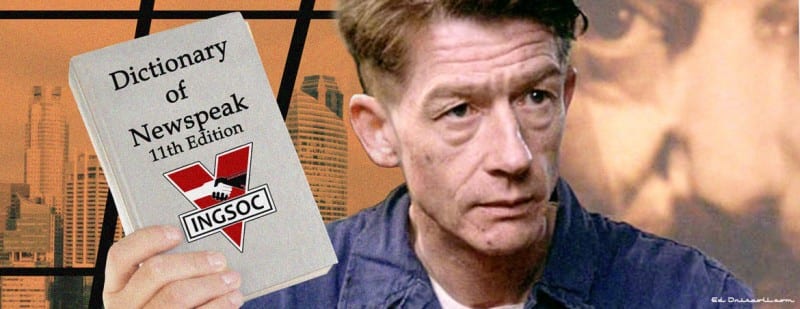ROGER KIMBALL ON THE ACCURATE REPRESENTATION OF THE WORLD: A reluctance to speak the truth instills an unwillingness or even inability to see the truth.
Had the fates been more generous, one name that I feel sure would occupy a place on that escutcheon is that of Joseph Rago. Joe, who died at the shocking age of 34, was known to the world at large as a brilliant editorial writer for The Wall Street Journal. His labors there won him a Pulitzer Prize when he was still in his twenties.
For more than a decade, he was known to the readers of my magazine The New Criterion as a contributor and, towards the end of his life, as our fiction critic, a post from which he ably lived up to the poet Horace’s injunction to delight as well as instruct. I am happy to note that Joe’s parents, Nancy and Paul Rago, are with us tonight. I wish that he could be as well.
It what was perhaps his last piece for The New Criterion, Joe cast an amused though gimlet eye over the eructations of impotent puerile fury that greeted the election of Donald Trump among the literati. ‘This ages-nine-and-up coping mechanism,’ Joe wrote, ‘does capture something significant about political and literary culture, circa 2017. Too much of politics, and of human experience,’ Joe went on, ‘is being fitted into neat good-bad binaries that appeal to feelings and status, not to the accurate representation of the world.’
‘The accurate representation of the world.’ How quaint that phrase sounds in an era of fake news and the wonton trampling of truth, not least by those entrusted with its dissemination: journalists, yes, but also many educators and other unworthy custodians of the achievements of our culture.
That’s an excerpt from Roger’s acceptance speech upon receiving “the Thomas L. Phillips award at the TFAS Journalism Awards Dinner in Manhattan last week.” It dovetails remarkably well with this item at NewsBusters today: ‘The Unhoused?’ Homelessness Gets the PC Treatment at the Washington Post.
Remember the first outbreak of PC years ago? Back then it was a distant, isolated phenomenon — an exotic STD localized to college campuses. Reality, like a dose of penicillin, would take care of things. Normal people had fun changing “bald” to “follically challenged,” and “hookers” to “horizontal laborers.” Good times.
A Sept. 19 op-ed in The Washington Post harkens back to those salad days. Writing about the West Coast’s homelessness crisis, author Chris Herring uncorks this howler:
But the residents and leaders of these liberal cities are also intolerant of the unhoused.
The unhoused? Is he serious? You bet. Herring is “a PhD candidate in sociology at the University of California at Berkeley.” Any sense of humor he may have once possessed was educated out of him long ago.
In fairness, “unhoused” makes only one appearance in a long, long piece about how mean everyone is to, er, the homeless — maybe it’s a trial euphemism that he’s testing outside an academic journal for the first time.
Seems like yesterday “homeless” became the accepted liberal euphemism for vagrants, drifters, bums or, more romantically, hobos. (It was, I believe, in the 1980s. Those people disappeared the moment Bill Clinton was sworn in, not to resurface until January 2001.)
But it’s a logical progression. “Homeless” removed judgement from the description — in exactly the same way “undocumented” removes judgement from the description of illegal immigrants. “The unhoused” takes the next step by removing agency. The subjects can only be victims deprived of shelter by circumstance or the malign action of others, certainly not by their own weaknesses or poor decisions.
As they say at the Ministry of Truth, “It’s a beautiful thing, the destruction of words.”

